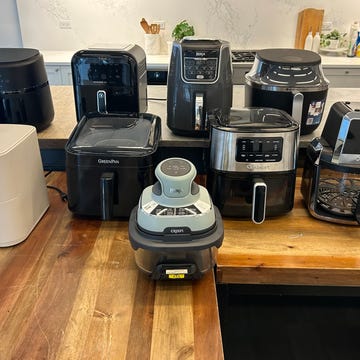It's hard to concentrate on anything if you're dealing with an itchy vulva or vagina. No one else can see what's going on, and yet it feels like your whole world is off kilter as you try to sit through meetings, movies or parent-teacher conferences. On top of the discomfort, vaginal itching can cause a lot of anxiety as you wonder what could be wrong, especially if it's accompanied by other symptoms, such as bumps or a vaginal rash. Fortunately, most causes of "down there" itching can be treated and the sooner you get a diagnosis, the faster you can find relief. Consider the potential causes below — and get ready to call your doc.
Causes of vaginal itching
There are as many causes of vaginal itching as there are styles of underwear (which, by the way, is sometimes the cause). These include:
The best home remedies for vaginal itching
1. Take a sitz bath
If you were looking for a good excuse to sneak away to the bathroom and relax in the tub for a while, here it is. Dr. Susan S. Khalil, M.D., an OB/GYN who serves as an obstetrics and gynecology director at the Icahn School of Medicine at Mount Sinai, recommends taking a sitz bath to relieve vaginal itching. This is a warm, shallow bath designed to bathe the anal and genital areas, including the perineum (the area in between). You can buy a sitz bath kit that fits over your toilet bowl, or simply fill a clean bathtub with a couple of inches of lukewarm or cool water (not super hot water), then soak in it for 15 to 20 minutes, and gently pat the area dry after.
2. Add baking soda to your bath
Beyond a simple sitz, soaking in baking soda can also effectively treat vaginal itching, says Dr. Khalil. Often used to help with skin conditions such as eczema, baking soda is specifically known to have antibacterial and anti-fungal effects — in fact, a Current Microbiology study showed that it kills Candida bacteria, one of the root causes of yeast infections. Essentially, it changes the PH of your vagina so the environment is less suitable for yeast to survive, explains Dr. Khalil. Experts at the University of Iowa Hospitals and Clinics recommend dissolving 4 to 5 tablespoons of baking soda in the bath, and soaking 1 to 3 times a day for up to 10 minutes. If you're taking a sitz bath, use just 1 to 2 teaspoons of baking soda.
3. Apply hydrocortisone cream
If your doctor assures you the itching is NOT due to a fungal infection such as yeast, you can go ahead and try an over-the-counter hydrocortisone cream, a steroid that's used to treat a variety of skin conditions including eczema, rashes and allergies. Just be sure to apply this cream only on the vulva — not inside your vagina. However, "if you have a fungal infection, steroids could exacerbate the condition," Dr. Sholes-Douglas warns.
4. Use an antifungal cream
Now, if your doctor confirms you actually DO have a fungal or yeast infection in your vagina, you can use over-the-counter antifungal creams such as Clotrimazol to treat it, Dr. Sholes-Douglas says. It's typically used for three to seven days in a row, and stops the growth of fungi. Unlike hydrocortisone cream, these creams are meant to be inserted inside the vagina — though the cream can also be applied to the external skin as well. That said, Dr. Sholes-Douglas warns against self-treating without a diagnosis from a health professional: "Often women assume that the itching is yeast-related and over-treat with these creams," she says. According to the American College of Obstetricians and Gynecologists, using an antifungal medication, in that case, may not work. In fact, it could cause a delay in the proper diagnosis and treatment of the real issue.
5. Eat yogurt and probiotics
Yes, eating food that contains probiotics, or taking probiotic supplements, can promote the growth of “healthy” bacteria in your gut, and it might be beneficial for vaginal health, too. Ongoing research suggests that there a connection between the gut microbiome and the vaginal microbiome. In fact, specific probiotics have been shown in human trials to fight bacterial infections of the vaginal and urinary tract. "Eating yogurt and probiotics can help keep the vaginal flora in balance as it keeps the gut flora in balance," Dr. Sholes-Douglas explains. But "avoid yogurts with high sugar content — you will override the benefit with too much sugar." Other great sources of probiotics include some fermented foods and drinks such as pickles, sauerkraut, kimchi, buttermilk, cottage cheese, kombucha and kefir.
6. Apply a cold compress
You can cool down the itch of a yeast infection — literally — by using an ice pack or an over-the-counter cooling pad. Just wrap it in a towel or washcloth first to avoid any potential skin reactions to the direct cold.
7. Try a vaginal moisturizer
As we go through the changes of perimenopause and menopause, vaginal dryness can cause discomfort and itching. If that's what you're dealing with, applying an over-the-counter vaginal moisturizer, such as Replens, can help. These medications increase moisture around and inside the vagina while strengthening vaginal tissues.
8. Stop using fancy scents on your vagina
They may smell nice, but they're unnecessary. Your vagina cleanses itself naturally by putting out healthy, normal vaginal discharge — so you don't need to use special soap or spray to keep it clean. Just rinse with warm water and gently pat (don't rub!) dry. Douching is not recommended unless prescribed by your doctor, as it can upset the natural balance of bacteria in your vagina. The same goes for menstrual products — opt for 100% cotton pads, tampons or even consider period underwear. Additionally, be mindful of the laundry detergent you're using, says Dr. Khalil. When washing intimate clothing, opt for mild soap and don't go overboard with any detergent. While you're at it, avoid fabric softeners (including dryer sheets) and detergents with enzymes.
9. Wear cotton underwear
When it comes to your undergarments, steer clear of fabrics that can exacerbate your itching. Dr. Khalil recommends choosing underwear made of 100% cotton, which is breathable and gentle on the skin. Some synthetic materials, like nylon, can trap heat and moisture, which can create the optimal breeding ground for a yeast infection.
FAQ:
When should you see a doctor for your vaginal itching?
"Patients should see healthcare providers or physicians if they have itching that does not resolve," despite home care, or if there is swelling or pain that is not resolving, says Dr. Khalil. It's also a good idea to see a doctor "if the [itchiness] is something new that they have not encountered in the past," she adds.
What should I avoid if I have vaginal itching?
Skip these things while your vulva or vagina is itchy:
- Perfumed bath and feminine hygiene products
- Tight leggings, pantyhose, or jeans
- Sitting around in wet swimsuits
- Scented or colored toilet paper
- Scented menstrual products, such as tampons or pads
Will Vaseline stop vaginal itching?
Petroleum jelly is considered a safe moisturizer to use on the vagina to soothe itching. Though, experts caution that it's important to avoid using it at the same time you're using latex condoms to protect against pregnancy and STIs. The sticky stuff can weaken the latex, and then you might wind up with a much more serious problem than just itching.
How long does vaginal itching usually last?
Though it depends on the underlying cause, with proper treatment you can expect to find relief in two weeks or less — though always check in with your doctor if you have any lingering concerns.
Dr. Kiarra King, M.D. is a Chicago based obstetrician gynecologist. She received her undergraduate degree from the University of Michigan (Ann Arbor) and her medical degree from the University of Illinois (Chicago). She completed her residency in obstetrics and gynecology at Advocate Illinois Masonic Medical Center in Chicago, Illinois. Dr. King is board certified through the American Board of Obstetrics and Gynecology.
She passionately cares for women throughout their lives and believes that education is empowerment. She is a sought after media expert in the women’s health and wellness space, speaker and digital content creator in the fashion, wellness and lifestyle spaces. Through her social media platforms, Dr. King actively works to ensure her community is informed through relatable content. Dr. King’s mission is to live a life that inspires those around her to embrace their given beauty, optimize their health and walk in their purpose.














